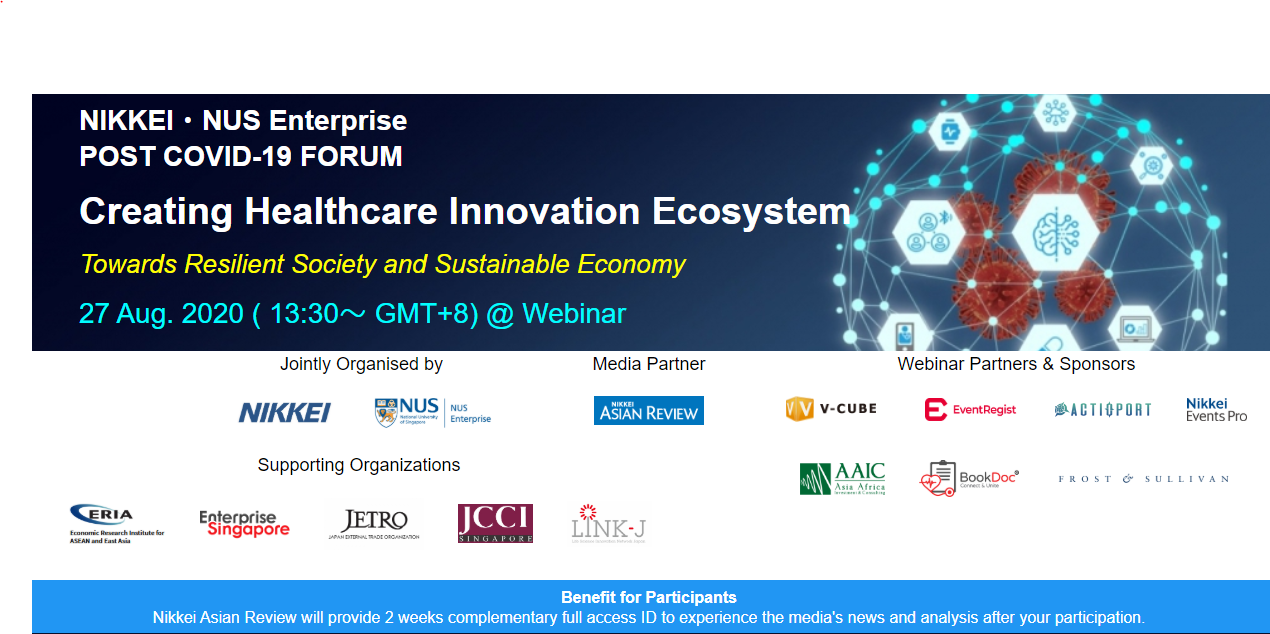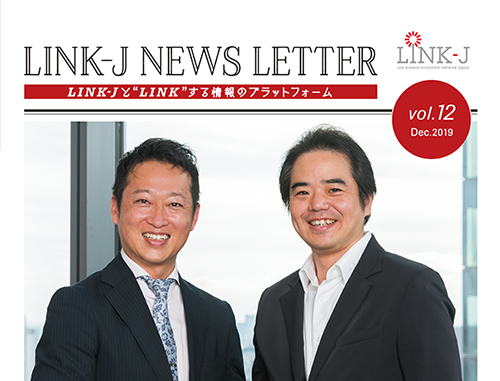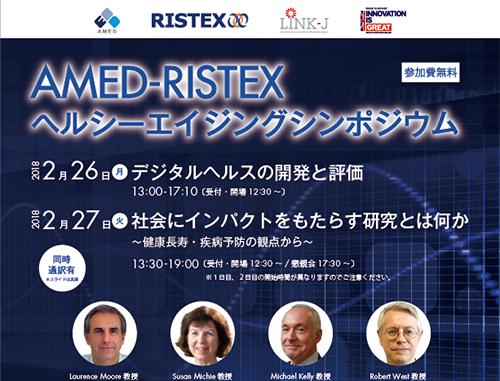On April 25 (Wed), DIGITAL HEALTH INNOVATION IN SWEDEN: SHAPING THE FUTURE OF HEALTHCARE was held at Nihonbashi Life Science Hub. (Organized by the Commercial & Investment Office of the Embassy of Sweden, with support from LINK-J)
The event aimed to give an overview of digital health in Sweden and introduce examples of unique companies there, as well as to promote understanding of differences in digital health between Sweden and Japan. A total of four speakers, including a digital health representative of the Research Institutes of Sweden (RISE), a co-founder of the unique digital health company Aifloo, and a digital health expert from Takeda Pharmaceutical Co., Ltd., took to the stage to address the topic of digital health. There were speeches, a panel discussion, and networking.

Welcome: Hideki Fujimoto (Senior Investment Advisor at the Commercial & Investment Office of the Embassy of Sweden)
Chair: Hideki Fujimoto (Senior Investment Advisor at the Commercial & Investment Office of the Embassy of Sweden)
Speakers: Hideki Fujimoto (Senior Investment Advisor at the Commercial & Investment Office of the Embassy of Sweden), Dr. Peter Kjäll (Head of Digital Health at RISE, Research Institutes of Sweden), Mr. Anders Widgren (co-founder of the Stockholm-based digital health start-up Aifloo), Mr. Masaru Ōtsuka (Digital Accelerator Japan Head at Takeda Pharmaceuticals Co., Ltd.)
Swedish Life Science Initiatives
Fujimoto explained what life science initiatives are made in Sweden and the context for the successive emergence of unique and innovative companies. He pointed out that Sweden differs from Japan in that it has a well-developed social system, provides strong incentives for businesses as all intellectual property rights for inventions belong to the individual researchers, and has well-functioning links between industry, government, and academia. He also took a number of questions from the audience.

Introducing Aifloo's Technology and Business
As a co-founder of Aifloo, Mr. Anders Widgren showed a short film and gave a presentation introducing their wristbands for elderly care that use a unique AI and a cloud information monitoring system. He spoke about this helpful system that can monitor all kinds of small movements made by elderly users in their rooms and elsewhere and that can also be used to detect early signs of dementia.

Introducing RISE and Swedish Digital Health Initiatives
Dr. Peter Kjäll gave an overview of the Research Institutes of Sweden (RISE) and of Swedish digital health initiatives as well as explained that RISE covers a wide range of research areas, consists of as many as 2,200 researchers, and actively conducts collaborative research with external organizations. He spoke about the high potential for digital health that Sweden has as the innovative spirit of establish IT industry, including Ericsson and Spotify, allows for combinations beyond the industrial sector.
What Is Needed to Develop Digital Health? (Panel Discussion)
Ideas were exchanged on a number of topics from the perspectives of research institutions, start-ups, and major pharmaceutical companies.
Points of discussion:
●What business models are needed for digital health companies and pharmaceutical companies in order to develop digital health?
● What are the structural differences between Sweden, where the triple helix model is working and unique digital health companies are appearing one after the other, and Japan, where industry-government-academia collaboration is dysfunctional?
● What are your thoughts on the big environmental and historical differences regarding big data usage in Japan and Sweden?
Conclusion:
● Achieving the kind of big data usage that exists in Sweden is an enormous challenge for Japan and not something that can be reformed at the level of individual hospitals, but it requires that central authorities like the Ministry of Health, Labor, and Welfare and the Ministry of Economy, Trade, and Industry take the lead to implement reforms.
● As the use of real world evidence is becoming increasingly crucial for global pharmaceutical companies, such initiatives are becoming more important.
● As digital health is an emergent industry, business model is important for both digital health companies and pharmaceutical companies to secure revenue.

Social
We would like to express our sincere thanks to the diverse range of participants from private companies, universities, and elsewhere. We are planning to create more meaningful opportunities to exchange ideas on the theme of life science between Sweden and Japan. We do not yet have a date for the next seminar, but will let you know once it is decided. We hope to see you there.






